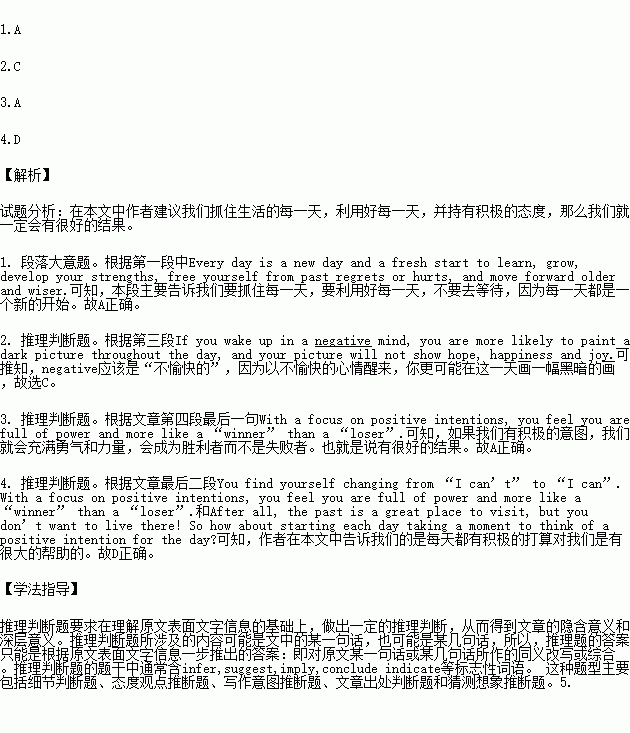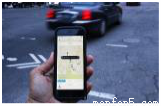题目内容
It does not have to be January 1st to give yourself a chance to make the most out of your day. Every day is a new day and a fresh start to learn, grow, develop your strengths, free yourself from past regrets or hurts, and move forward older and wiser. Every day gives you chance to reinvent yourself. It is never too late to change things that are not working in your life.
Each day is a new beginning and a piece of blank paper. How would you like to create your day? If you wake up in a negative mind, you are more likely to paint a dark picture throughout the day, and your picture will not show hope, happiness and joy.
If you take each day to think actively, and have a positive intention for how you would like to create your day, how would your life different? What can daily positive intentions do for you? Every day you will give yourself the gift of an “attitude of gratitude”.
Each day is a chance to look at things in a different way. You can experience each day in the beauty of the world—and the beauty of you who is in it! You find yourself changing from “I can’t” to “I can”. With a focus on positive intentions, you feel you are full of power and more like a “winner” than a “loser”.
You pay more attention to the present, and will be more likely to live fully in the present each moment of each day. After all, the past is a great place to visit, but you don’t want to live there! So how about starting each day taking a moment to think of a positive intention for the day?
1.The first paragraph mainly tells us ________.
A. we should make every day a new start
B. January 1st is the most important day
C. learning is helpful in reinventing ourselves
D. we needn’t change ourselves at all
2.The underlined word “negative” in Paragraph 2 probably means ________.
A. not clearB. not wiseC. not happyD. not careful
3.If you have daily positive intentions, you will ________.
A. get a positive resultB. have a busy life
C. get gifts from othersD. be a complete loser
4.From the passage we can learn that ________.
A. past regrets or hurts can make you older and wiser
B. think actively and you will be a winner, not a loser
C. the present is not where you should live for ever
D. positive intentions for each day are of great help


